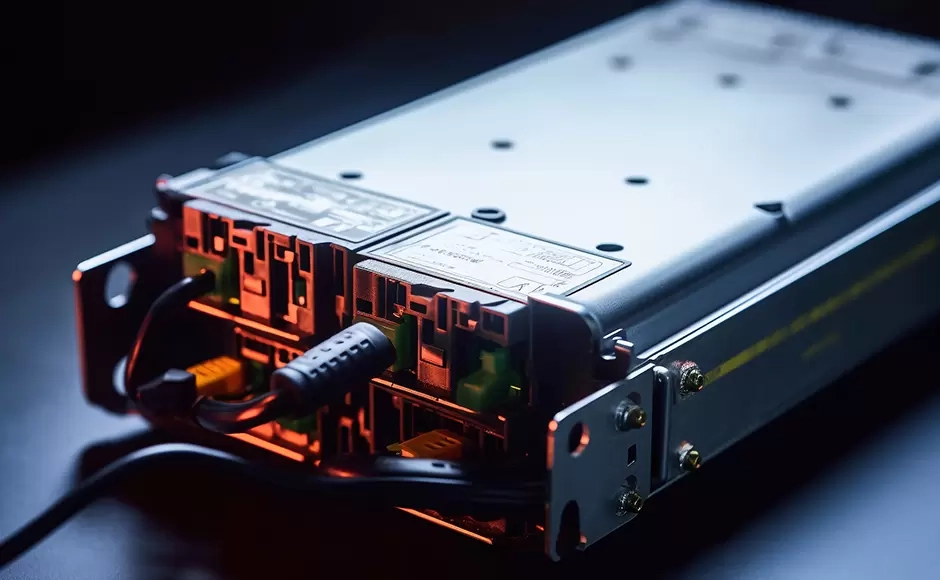In the power industry, safety, security, and operational efficiency are paramount. Power plants, substations, and electrical infrastructure require stringent safety protocols to protect both workers and equipment from potential hazards. One of the essential elements in ensuring these safety standards is the use of locking solutions for power industries. These solutions not only safeguard critical infrastructure but also prevent unauthorized access, reducing the risk of accidents, theft, and potential damage to expensive equipment. Locking solutions for power industries are designed to address specific needs in environments that deal with high-voltage equipment, complex control systems, and sensitive operational areas. These solutions are integral to creating a secure and safe working environment for operators, technicians, and maintenance personnel. This article Shengjiu delves into the importance of locking solutions for power industries, discussing their benefits in ensuring the safety, security, and reliability of power generation and distribution facilities.

The Importance of Locking Solutions For Power Industries
The power industry operates under strict regulatory standards designed to minimize risks and ensure continuous operations. Critical infrastructure, such as electrical substations, transformers, and power plants, requires robust security to prevent unauthorized access and maintain safe working conditions. Locking solutions for power industries are specifically designed to meet these needs, providing an essential layer of security.
In power generation and distribution systems, employees may work with equipment that poses substantial safety risks. For example, electrical panels, switchgear, and high-voltage systems can be hazardous if accessed improperly. Proper locking mechanisms help control who has access to these areas, minimizing the chance of accidents or injuries.
Moreover, locking solutions for power industries help protect sensitive data, equipment, and systems. Power plants rely on sophisticated technologies for control and monitoring, and safeguarding these systems is critical for uninterrupted operation. Effective locking systems prevent unauthorized personnel from tampering with these systems, which could otherwise lead to downtime or system failures.
Benefits of Locking Solutions for Power Industries
The implementation of robust locking solutions for power industries provides numerous benefits, ranging from enhanced security to improved operational efficiency. Below are some key advantages of these solutions:
1. Enhanced Safety and Risk Mitigation
The primary benefit of effective locking systems is the enhancement of safety within power plants and related infrastructure. By controlling access to high-risk areas, such as electrical panels or hazardous material storage, locking solutions for power industries prevent unauthorized access and reduce the risk of accidents. This is particularly important in environments where workers are exposed to electrical hazards, chemicals, or heavy machinery. Lockout-tagout systems are particularly valuable in ensuring that hazardous energy sources are deactivated before workers perform maintenance or repairs, greatly reducing the risk of accidents and injuries. The proper implementation of locking mechanisms ensures that safety protocols are followed and that workers are protected from dangerous situations.
2. Prevention of Unauthorized Access
With the complex and often high-value equipment found in power industries, the need to protect these assets from theft or sabotage is critical. Locking solutions for power industries provide effective barriers against unauthorized access to sensitive areas. Whether through padlocks, electronic locks, or high-security systems, controlling access ensures that only authorized personnel can operate or interact with high-value equipment. Remote monitoring and control features in electronic locking systems further enhance security by providing real-time access logs and alerts, allowing for immediate action in the event of suspicious activity.
3. Compliance with Industry Standards
In industries such as power generation and distribution, compliance with safety and security regulations is a requirement. Locking solutions for power industries help companies comply with safety standards and regulatory requirements related to access control, equipment maintenance, and energy isolation. For example, lockout-tagout systems are mandated by regulatory agencies, such as OSHA in the United States, to ensure that proper safety procedures are followed during maintenance and repair activities. By integrating locking systems into their operations, companies can demonstrate compliance with industry standards and avoid costly penalties associated with non-compliance.
4. Operational Efficiency
Effective locking solutions not only improve safety and security but also enhance operational efficiency. By reducing the need for manual intervention in securing areas and monitoring access, locking systems automate many tasks that would otherwise require significant labor resources. This leads to smoother operations and reduced downtime. Additionally, key control systems and smart locks provide facility managers with a convenient way to manage access, monitor personnel movements, and track key usage, all of which help streamline day-to-day operations and ensure that critical areas are always secure.
Locking solutions for power industries are an integral part of ensuring the safety, security, and efficiency of power plants, substations, and electrical infrastructure. From traditional padlocks and key control systems to modern electronic locks and lockout-tagout systems, these solutions help mitigate risks, prevent unauthorized access, and ensure compliance with safety regulations. By incorporating robust locking mechanisms into their operations, power companies can enhance safety, protect valuable equipment, and improve overall operational efficiency. As the power industry continues to evolve, effective access control and security systems will remain critical to maintaining the reliability and safety of electrical infrastructure worldwide.






